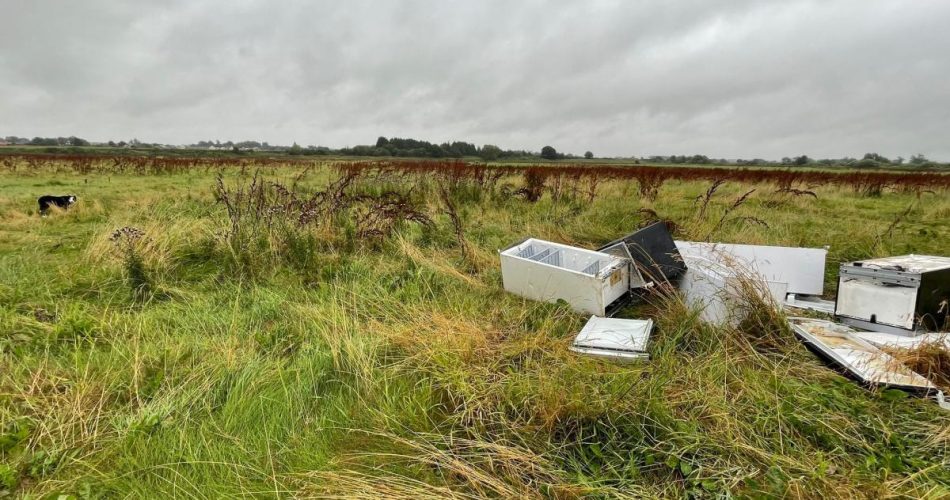Fridges have been dumped on the Kempsey Ham- prompting a warning from the council about fly-tipping.
Several of the appliances were spotted dumped on the Kempsey Hams yesterday (Sunday, July 23).
A team from the council will be sent out to clean up the fly-tipped white goods.
A spokesperson for Malvern Hills District Council said: “We can confirm the fly-tip in Kempsey was reported to us this morning (July 24) and we will send a team out to clear it as soon as possible.
“Fly-tips are a blight on our beautiful district and are a danger to the environment.”
The district council is urging people to follow the SCRAP code:
- Suspect anyone who offers to take waste away for you.
- Check they are properly registered, ask to see their licence or check the Environment Agency’s website.
- Refuse any unexpected offers from people offering to take your rubbish away, find your own company.
- Ask what will happen to your rubbish and ask for…
- Paperwork (such as a receipt or invoice).
“If you give your waste to someone and they illegally dump it, you could still be prosecuted as it is your waste,” the council spokesperson said.
“Help us crackdown on fly-tipping by using only reputable companies and report fly-tipping via our website.”
Figures released earlier this year showed more than 80,000 fly-tipping cases were reported to local authorities across the West Midlands last year.
According to DEFRA, there were 1.09 million fly-tipping incidents on public land reported to local councils between April 2021 to March 2022.
The Country Land and Business Association, which has a membership of around 27,000 rural businesses and landowners across England and Wales, believes that these figures only represent half of the story.
Sophie Dwerryhouse, Midlands regional director, said: “These figures barely show the full extent of this crime which is having a devastating effect on the rural economy and communities.
“The perpetrators have little or no consideration of the effect of their actions, with no thought about the impact of their crime on the environment, wildlife and landowners who have the financial burden of removing their waste.”

